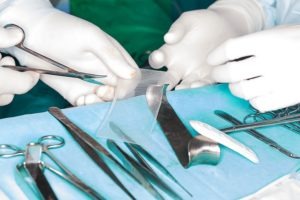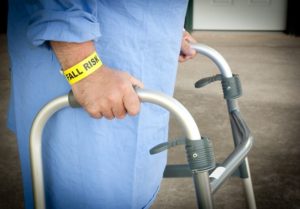What are the Dangers of Hernia Mesh Surgery ?

As it turns out, there’s a reason why the wiser people in our lives told us to avoid straining or exerting ourselves very often. We often heard those sentiments– “Don’t blow a gasket!”– when lifting heavy weights, coughing repeatedly, or attempting to use the restroom. The reason why it’s not healthy is because it increases one’s chances of a hernia.
The downside of having a hernia, aside from the offputting bulge or lump it produces, is that it will require surgery to properly heal. If you’re having hernia repair surgery, more than likely it will involve hernia mesh. Unfortunately, as thousands of patients will tell you, this only opens the door for more complications.
What is a Hernia?
For a free legal consultation, call (725) 900-9000
A hernia occurs when an internal organ manages to force its way through an opening in the tissue or muscle that holds it in place. They are recognized by a distinct bulge or lump in the affected area. There are four common types of hernias– inguinal, femoral, umbilical, and hiatal– which affect the groin, upper thigh, abdomen, and diaphragm, respectively.
Hernias are caused when certain groin or abdominal muscles are weakened, either by birth deformities or from repeated physical strain such as extreme exercise or coughing.
In many cases, there are no symptoms for a hernia other than the distinct bulge or lump, but some patients can also experience the following:
- Increased pain at the site of the bulge
- Increase in bulge size over time
- Pain and swelling in the testicles
- Pain when lifting
- Dull aching sensation
Surgery is the only effective treatment; there are over a million hernia surgeries performed each year in the US, most of which to repair inguinal (groin) hernias. A small percentage of surgeries simply enclose the opening in the tissue by stitching it back together, but a majority of procedures– about 90 percent— involve the use of hernia mesh.
What is Hernia Mesh?
Click to contact our personal injury lawyers today
Hernia mesh is a breathable device that is placed over the affected area as a form of support– think of it as a large Band-Aid that helps keep everything in place. Surgeons use it to reduce the chances of the hernia recurring, or bursting through again.
Complete a Free Case Evaluation form now
According to a 2014 study which reviewed over 150,000 hernia repairs, researchers found that hernias recurred in only about 3 percent of patients who used mesh, compared to 8 percent in those who did not.
Over the years, the hernia mesh market has become increasingly lucrative, with the global market valued at over $4 billion in 2017 alone. There are dozens of manufacturers who offer a multitude of different product choices, from permanent or non-permanent, natural or synthetic, etc. Most options have proved largely safe and successful– some products, however, have caused serious complications.
Which Makers are Being Sued and Why?
Out of the dozens of mesh manufacturers, there are four which have come under the spotlight in recent years– Ethicon, Atrium, Bard Davol, and Covidien. Between the four, there are nearly 15,000 suits pending as of October 2020. Recalls have been happening since 2005.
The makers and their products may vary, but hernia mesh lawsuits essentially boil down to this: the mesh is defective in some way that was unbeknownst to the patient, and now the patient is experiencing additional complications as a result of the device, in some cases life-threatening.
These are the most common problems associated with hernia mesh defects:
- Infection
- Perforation of organs or tissues
- Adherence (mesh sticking to internal tissue)
- Migration of mesh within the body
- Mesh failure (break, shrinkage, eroding)
- Bowel obstruction
- Fluid buildup (seromas)
Between the four manufacturers listed above, there are dozens of individual models that have been noted or recalled by the FDA– if you are curious about a specific type, they are listed in total in the administration’s official medical device recall list.
Am I Eligible for a Lawsuit?
Patients who have undergone hernia repair surgery and have experienced complications resulting from a hernia mesh model that has been previously linked to defects may be entitled to compensation.
Anyone who wishes to compile a strong case should consider gathering the following materials: proof of hernia mesh surgery on or after January 1st, 2006; proof of product used (manufacturer, model); proof of further complications or additional procedures that occurred more than 30 days after the initial surgery; proof of product’s liability for damages (typically done through testimony, review of records). If you or a loved one has undergone hernia repair surgery and is now experiencing complications related to a hernia mesh implant, be sure to consult with a medical professional right away. Then contact the experienced attorneys at Van Law Firm. Our team of Product Liability and Personal Injury lawyers can help you receive multiple kinds of compensation, including medical reimbursement, lost wages, and pain and suffering. Your consultation is free and confidential– call (725) 900-9000 today.
No obligation consultations are always free.
Let Us Help You! Call Now: (725) 900-9000


